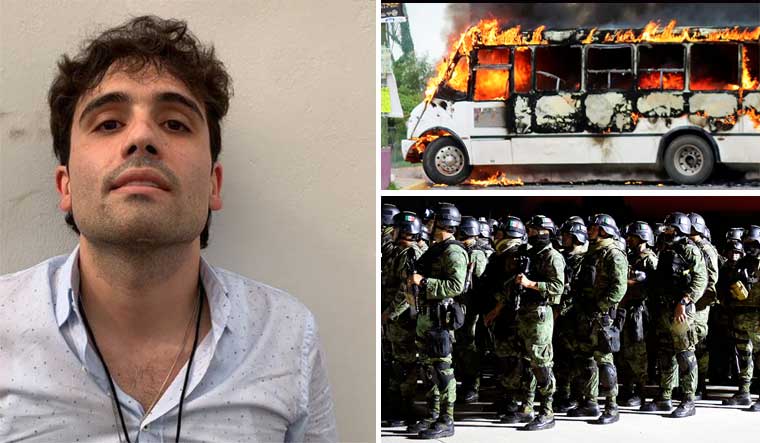The social impact of Mexico’s clashes between drug cartels and police will be felt long after the month is done and dusted.
In a show of force perhaps unparalleled in criminal history, the Sinaloa Cartel beat the Mexican Army and police in all-out gun battles, effectively taking over the city of Culiacan: Capital of the state of Sinaloa with around 800,000 residents.
The decision of the Mexican authorities to stand back was largely made keeping civilian casualties in mind—prolonged fighting would have led to hundreds of civilian deaths on top of the eight that had already taken place.
The reason behind the violence was the arrest of Ovidio Guzman, 28, the son of Joaquin “El Chapo” Guzman, who heads a faction of the cartel his father once ran. On October 17, Mexican authorities, backed by 35 troops, arrived at Guzman’s home to arrest him, acting on a 2018 extradition request by the United States (where El Chapo himself is currently in custody).
The police were not even able to get Guzman out of the house as they soon found themselves surrounded by armed gangsters. Adding to the chaos, gunmen took over tool booths and main roads across the city, blocking major intersections.
Scenes of anarchy followed as 55 inmates from the Aguarato prison managed to escape, taking guns from prison officers as they did so. Pitched gun battles took place across the city as the gangsters used military-calibre weapons and tactics. Outnumbered and outgunned, security forces were forced to let Guzman go.
The shutdown was complete, with schools and public institutions closed due to the violence. In some places, AP reported that Sinaloa cartel members took soldiers hostage, attacking the housing complex where their wives and children lived.
Less than nine months had passed since newly-elected Mexican president Andrés Manuel López Obrador declared the war on drugs—that had spanned more than a decade and claimed over 150,000 lives—‘over’. In a statement to the public on October 18, Obradaor said that the decision was taken to protect citizens, “You cannot fight fire with fire...we do not want deaths. We do not want war.”
The resonance of the government’s capitulation has shaken Mexico. Carlos Bravo Regidor, a professor at the Centre for Research and Teaching in Economics, tweeted saying that whether Obrador (popularly known as AMLO) believes in war or not, war continues.
On YouTube, narcocorridos—a narrative genre of music that tells stories of drug smugglers and criminals—on the topic of Guzman’s victories have been earning tens of thousands of views, interplayed with footage of the gunfights.
In the aftermath of the violence, Mexico ramped up its troop presence in Culiacan on Monday, October 21, sending in 400 crack troops to run through the streets and reinstill confidence in the government. The same day, a national poll showed that two-thirds of respondents still felt that the gangsters were more powerful than the government.


